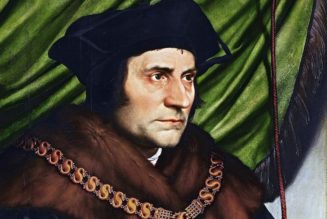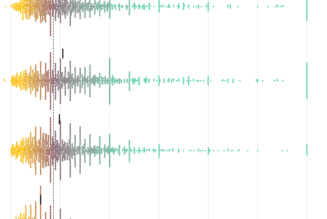A recent edition of The Spectator carried an article by Dan Hitchens in which he quoted the Cambridge historian Richard Rex as saying that there have been three great crises in the history of the Church. The first was over the nature of God (all those fights about Christology in the early Church), the second over the nature of the Church herself (all those Protestant splits during the sixteenth century) and now, a battle over the nature of man (all those fights about what we may or may not do with our bodies).
This “nails it”, as it were, but beneath the crisis over the nature of man there is a crisis over the nature of Catholic theology. At this moment in the life of the Church divisions over fundamental theological issues are tearing communities apart.
One of the reasons why Benedict XVI may be declared a Doctor of the Church is that he understood that a mistake at the base of a theological system can destroy the whole system. If we now have Catholics whose world view seems to be indistinguishable from that of Meghan Markle, and thus, contrary to two millennia of Christian teaching, then we do need to be looking at the fundamental principles.
In the midst of this dark night in the soul of the Church, there are at least 10 principles to be mined from the intellectual treasury of Benedict XVI that can help us to navigate our way through the crisis.
1. Logos Precedes Ethos
The first is that logos must precede ethos. Yes, this sounds really esoteric! It was however a principle that the great Romano Guardini was fond of emphasizing and it was taken up by Ratzinger/Benedict. Another way to put this is that truth precedes praxis. Our practices need to embody the truth. Many theologians want to flip this order of precedence and make ethos, or what Marxists call praxis, take precedence. Ratzinger/Benedict was totally opposed to this approach to theology. In his Principles of Catholic Theology (1987) he wrote:
If the word “orthopraxis” is pushed to its most radical meaning, it presumes that no truth exists that is antecedent to praxis but rather that truth can be established only on the basis of correct praxis, which has the task of creating meaning out of and in the face of meaninglessness. Theology becomes no more than a guide to action, which, by reflecting on praxis, continually develops new modes of praxis. (p. 318)
He concluded that when praxis takes priority, truth becomes a product of man and man himself becomes a commodity.
This trajectory is evident in celebratory pop culture where people create their own narratives which may have very little if anything to do with reality—that is, with the truth—and then, on the basis of the self-constructed narrative, set about selling these phony “selves” to the world.
2. Truth is the “middle term” between authority and subjectivity
Related to this demotion of truth is the idea that people may reach different conclusions about the same moral question based on the authority of their conscience. The late Cardinal George Pell called this the “Donald Duck” heresy. Donald always meant well, even if his behavior had some unforeseen consequences. Ratzinger/Benedict would say that it is not enough to mean well, and that while we should follow our conscience, our conscience can err, and if it does so, it means that we have failed to perceive the truth. As he wrote: “the guilt lies then in a different place, much deeper – not in the present act, not in the present judgement of conscience, but in the neglect of my being that made me deaf to the internal promptings of truth.” (On Conscience, Ignatius, 2007, 38). Ratzinger emphasized that for Cardinal John Henry Newman, “the middle term – which establishes the connection between authority and subjectivity – is truth” (On Conscience, 24). He further observed that truth is a much higher good than consensus. Mere consensus is no guarantor of the truth.
3. Trust in Scripture
So where do we find the truth? Christ said that he was the way, the truth, and the life (cf. Jn 14:6), and thus to find the truth we go to Christ. How do we do that? The first thing we do is to read the Scriptures to see what they have to tell us about Christ. Ratzinger would say that we have to trust Scripture. We are not at liberty to dismiss the Scriptures on the ground that no one followed Christ around with a tape-recorder. On the contrary, we have to trust that the Holy Spirit was active in the composition of the Scriptures, and thus that it is rational to believe in the authority of Sacred Scripture. Such a belief is a central element of the apostolic faith. We really cannot get around this. The place to find the best of Ratzinger’s work in this field of biblical hermeneutics is his Erasmus Lecture of 1988 and the document of the Biblical Commission of which he was the Chairman, titled “The Interpretation of the Bible in the Church.” The best secondary literature is Aaron Pidel’s The Inspiration and Truth of Scripture: Testing the Ratzinger Paradigm (Catholic University of America Press, 2023).
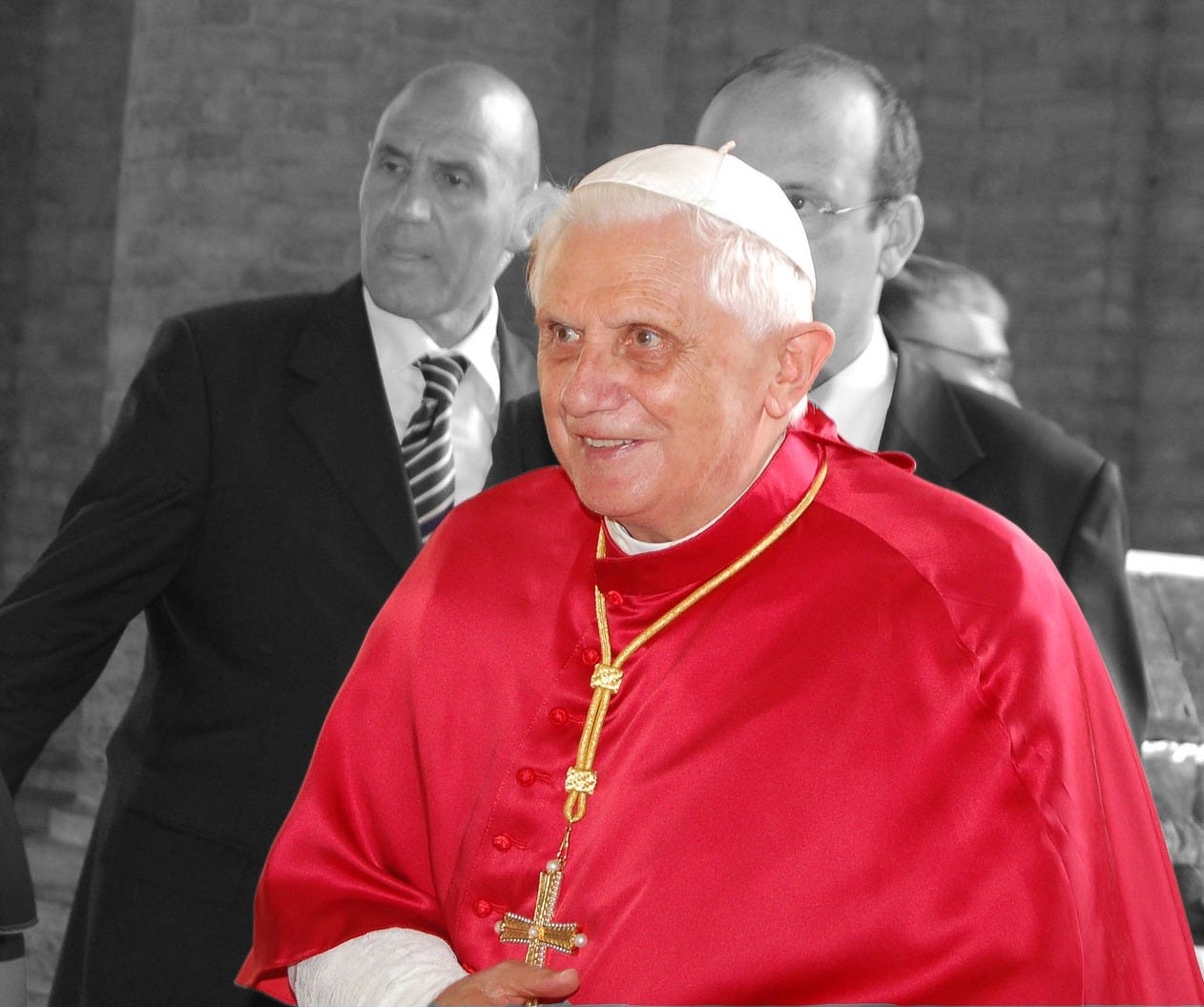
4. The Eucharist Is Not a Sinner’s Banquet
Where else do we encounter Christ? Ratzinger would say in the life of the Church and especially through the sacrament of the Eucharist, the very body and blood of Christ. Having a right understanding of Eucharistic theology is extremely important. Ratzinger argued that the Eucharist is not a “fellowship meal.” It is not a celebration of the achievements of the local community. It is not a tea party and it is not a sinner’s banquet. The Last Supper was held with Christ’s friends (though one was about to betray him) (cf. God is Near Us, 59). In his Apostolic Exhortation Sacramentum Caritatis, Benedict XVI described the Eucharistic miracle as a sort of “nuclear fission” that “penetrates to the heart of all being, a change meant to set off a process which transforms reality, a process leading ultimately to the transfiguration of the entire world, to the point where God will be all in all” (SC §11). In the same document he argued that the Eucharist has a particular relationship to the sacrament of matrimony. With reference to the theology of St. Paul, he noted that “conjugal love is a sacramental sign of Christ’s love for his Church, a love culminating in the Cross, the expression of his ‘marriage’ with humanity and at the same time the origin and heart of the Eucharist” (SC §27). This is something far deeper than the brotherly love in Beethoven’s Ode to Joy. Analogous to the principle that logos precedes ethos is the principle that dogmatic theology and Eucharistic theology are related to one another intrinsically. They do not operate in hermetically sealed compartments. In The Nature and Mission of Theology, Ratzinger endorsed the judgement of Albert Görres that “there is no doctrine of Jesus without a skeleton, without dogmatic principle” and Görres’ description of the mentality that “faith propositions do not matter because the important thing is contact with a spiritual atmosphere” as the “Hinduisation of the faith” (p. 91).
5. Church Teaching Develops Organically
Since truth matters, the Church cannot develop her teaching the way that political parties develop their policies. “Truth is not determined by majority opinion” was one of Ratzinger’s sayings. Truth is not discerned by taking opinion polls and searching for a consensus. In an essay published in the book Demokratie in der Kirche, Ratzinger remarked:
Indeed, by its very nature, faith is suspended where it is subjected to the majority principle. Why should Mr. Muller or Mrs. Huber be able to oblige me to believe this or that which they more or less happen to think is right? Why should I be obliged to believe what a majority passes today that might tomorrow be replaced by an opposing majority? Either there is a different authorization in the faith of the church than that of human opinion, or there is not. If not, then there is no belief, but everyone thinks up whatever he thinks is right. (p. 88)
Just as Ratzinger was influenced by Newman’s understanding of conscience, he was also influenced by Newman’s understanding of the development of doctrine. Newman emphasized that doctrines can only develop organically from the original deposit of the faith. This means that teachings can be refined but that the doctrinal tradition does not flip-flop or go into reverse, holding as truth today what was heresy yesterday. There must also be an internal coherence between the teachings in different areas of theology. The branches of theology are not completely distinct areas of understanding but fit together rather like the way that a Gothic cathedral is structured so that its different sections (the long pointed arches, the exterior buttresses, the ribbed vaults, the stained glass windows, and the gargoyles) all play a role in maintaining the building’s stability. Theologians need to be aware that a change to a teaching in one area of theology can have dramatic repercussions in another.
6. Relationship between Faith and Reason
For Ratzinger the relationship between faith and reason is symbiotic. They need to purify each other. The Catholic intellectual tradition represents a synthesis or integration of the two. It was for this reason that Romano Guardini’s professorial chair at the University of Munich was described as the Chair of the Christian Weltanschauung (world-view) because Guardini wanted to work in the fields of philosophy and theology simultaneously. This ran counter to the post-Kantian tendency to totally separate philosophy from theology. In Principles of Catholic Theology Ratzinger argued that “the crisis we are experiencing in the Church and in humanity is closely allied to the exclusion of God as a topic with which reason can properly be concerned – an exclusion that has led to the degeneration of theology first into historicism, then into sociologism and, at the same time, to the impoverishment of philosophy” (p. 316). He thereby stood opposed to both a Kantian-style segregation of “pure reason” from faith, and a kind of Barthian reserve about the merits of philosophy. For Ratzinger, philosophy was understood in a pre-modern manner as an openness to the divine.
7. We must believe in a Creator God
In his essay published as “In the Beginning…” Ratzinger took the book of Genesis seriously. This means that he believed that God is the creator of the cosmos, including our world, the people within it, and the animals too. He declared that “we can win the future only if we do not lose creation” (p. 100). As a matter of logic, he explained that only if creation is good are human beings redeemable, and only our Creator can be our redeemer. Further, if human beings are indeed created by God, they are creatures, not commodities. Moreover, the dignity of their creaturely nature is not found in their capacity to sell themselves as a brand or choose their own gender but in their having been made in God’s image. This in turn means that there is a human ecology. The belief in creation is also important for the understanding of our stewardship of creation. The leading Anglophone scholar who is working in this field, following upon the theological anthropology of St. John Paul II and Benedict XVI, is Michael Dominic Taylor.
8. Understanding of Synodal authority
Synodality is an equivocal concept. Ordinary synods are gatherings of bishops at regular intervals. Extraordinary synods are meetings to discuss some particular issue, such as the Synod on the Word of God held during the pontificate of Benedict XVI. What is currently at issue are questions such as: How are synods to be structured? Who is qualified to be invited? What authority do participants have? What weight of magisterial authority do decisions of synods carry? Although these questions are issues for ecclesiology, they are fundamental in the sense that they reach down into the deepest seams of Catholic theology such as: What is the Church? What is a bishop? What is the relationship between the ordained ministry and the lay apostolate?
Speaking of the idea of a permanent synodal structure of mixed lay and episcopal membership in his Demokratie in der Kirche essay, Ratzinger declared:
The idea of the mixed synod as a permanent supreme governing body of the national churches is a chimerical idea in terms of the tradition of the church as well as its sacramental structure and its specific goal. Such a synod would lack any legitimacy and therefore obedience to it has to be decisively and unequivocally denied. (p. 31)
In the same essay, Ratzinger pointed to the unrelenting conflicts unleashed in the Church of England by the permanent synodal processes and to the unpopularity of experiments undertaken by Catholic groups on German university campuses designed to democratize ecclesial governance. He praised students in Cologne who “resolutely rejected” the “synodal conspiracy” (synodale Komplott) since they wanted their community to be bound together by the one thing they had in common—“the gospel of Jesus Christ, as the faith of the church professes” (p.33).
This is not to say that Ratzinger was against synods, but he was against the idea of governing the Church by way of a permanent synodal process in the manner of the Church of England. Synodality has the capacity to become a weasel word in the sense that it is given a different content by different theologians and ecclesial leaders. Underpinning some versions of it is Newman’s concept of the sensus fidelium. The International Theological Commission’s 2014 document, “The Sensus fidei in the Life of the Church,” outlined the kinds of dispositions required by members of the laity before they could be relied upon to possess the sense of faith. Not just anyone who happens to have been baptized can be assumed to have this sense. St. John Paul II, Pope Benedict XVI and Pope Francis have all stated that the sensus fidei is not synonymous with some kind of majority position opinion poll. However, many popular proponents of the concept do market it as an opinion poll akin to referenda on controversial social issues in democratic countries. Work needs to be done to separate the wheat from the chaff in this area of ecclesial governance experiments.
9. Understanding of Holy Orders
Just as the fundamental concepts like “Church” and “bishop” require attention, so too does the understanding of Holy Orders generally. In his retirement period Pope Benedict spent a considerable amount of time and emotional energy defending the practice of a celibate priesthood and the notion of a priest as someone more than a community leader. In the Fall of 2023 Ignatius Press will publish What is Christianity?: The Last Writings which contains a collection of essays and short addresses delivered by Pope Benedict during his period as Pope Emeritus. It will include a very significant reflection on the priesthood. This should be read alongside the book From the Depths of our Hearts: Priesthood, Celibacy and the Crisis of the Catholic Church by the Pope Emeritus and Cardinal Robert Sarah and Friends of the Bridegroom: For a Renewed Vision of Priestly Celibacy by Cardinal Marc Ouellet.
10. Understanding of the Petrine Office
In his God and the World interview, Ratzinger remarked:
The Pope himself cannot even say, I am the Church, or I am tradition, but he is, on the contrary, under constraint, he incarnates this constraint laid upon the Church…. The Pope is thus not the instrument through which one could, so to speak, call a different Church into existence, but is a protective barrier against arbitrary action. (p. 377)
As such a pope is not an absolute monarch, but something more like a constitutional monarch whose powers are fettered by a constitution or constitutional conventions. In this case the Sacred Scriptures and the ecclesial Tradition act as the constraints on his arbitrary exercise of power. He is also a principle of unity for the Church. He is not a chairman of a debating society or a CEO of a multinational corporation as some who campaign for the democratization of ecclesial governance would have it. He carries the responsibility for the defense of the faith, its protection from corruption, and he is, following Christ, a shepherd responsible for the spiritual well-being of some 1.3 billion sheep. Since some of these sheep are persecuted in countries governed by totalitarian ideologues, he is also responsible for the decisions taken by Vatican diplomats who deal with the ideologues. The Petrine office is therefore the most awesome responsibility imaginable and it is not surprising that Ratzinger used the adjective “martyrological” to describe it.
What we need now is a return to the fundamental principles of Benedict XVI, which synthesize two millenia of Catholic teaching.
Professor Tracey Rowland is St. John Paul II Chair of Theology at the University of Notre Dame in Australia. She has published 8 books and over 150 articles. In 2020 she was awarded the prestigious Ratzinger Prize for her extensive writings on his theology.
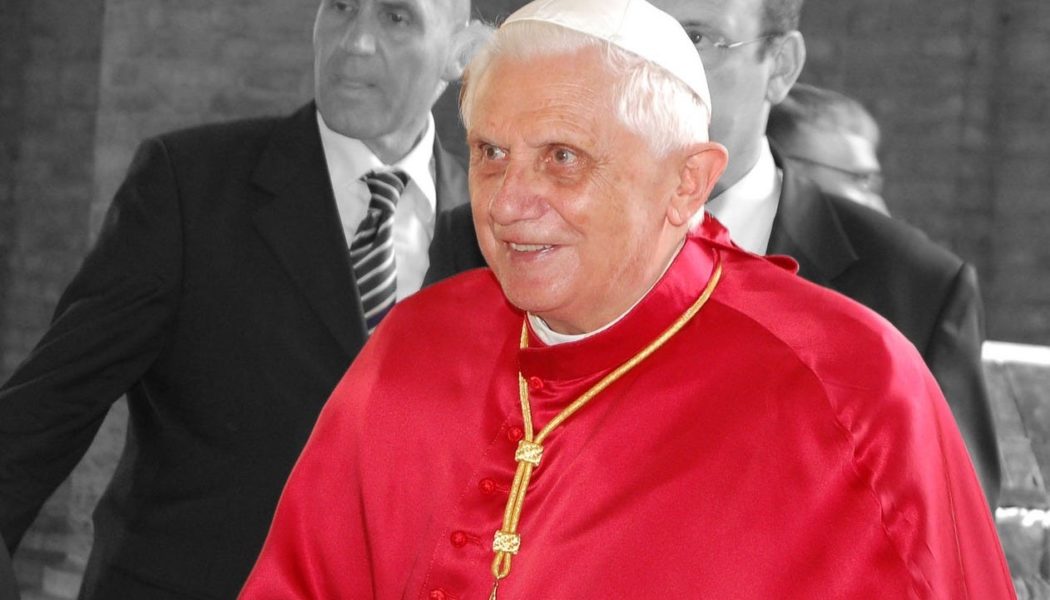
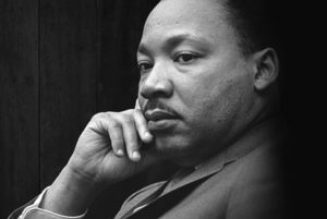

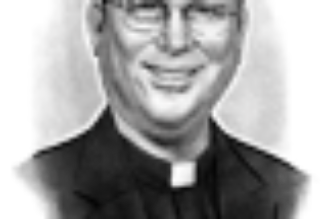
![Vatican Note on the Morality of Using Some Anti-COVID-19 Vaccines [Full Text]…](https://salvationprosperity.net/wp-content/uploads/2020/12/vatican-note-on-the-morality-of-using-some-anti-covid-19-vaccines-full-text-327x219.jpg)

